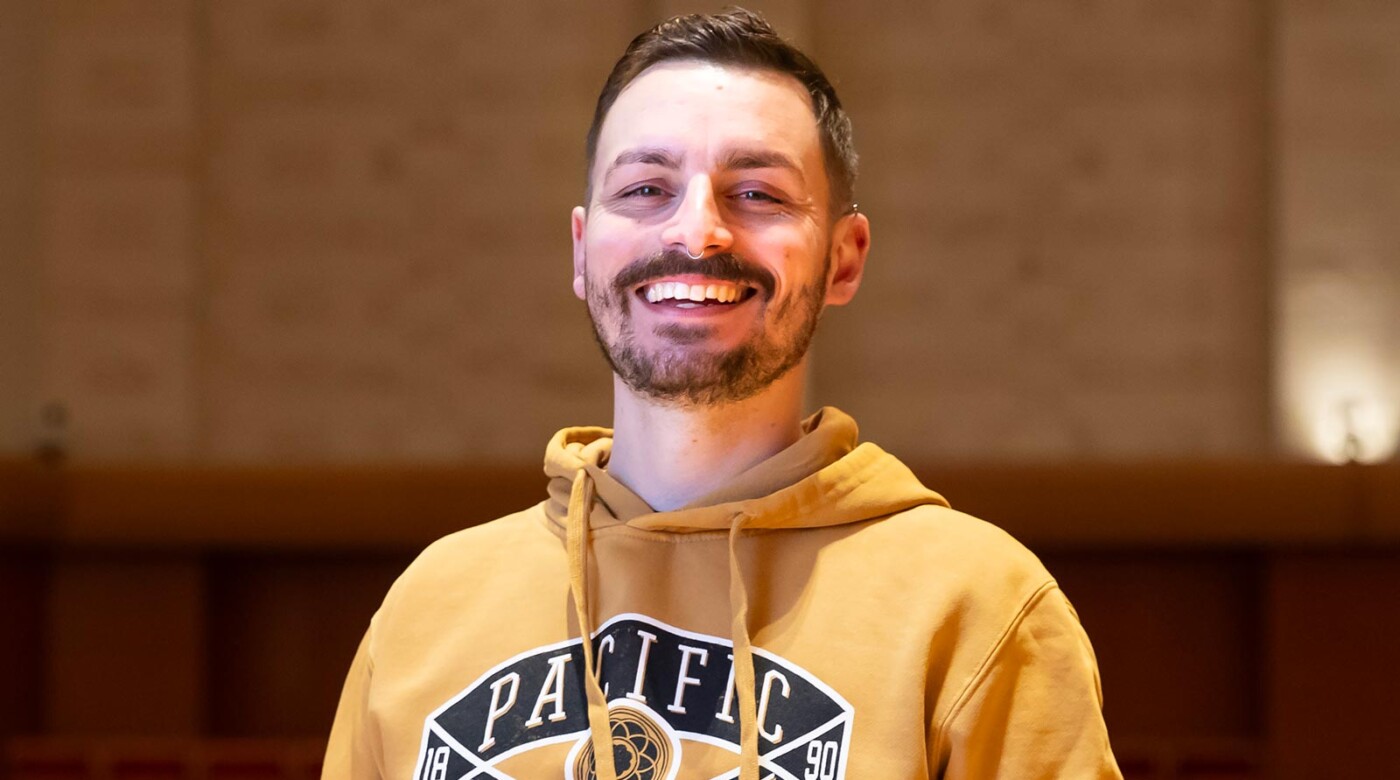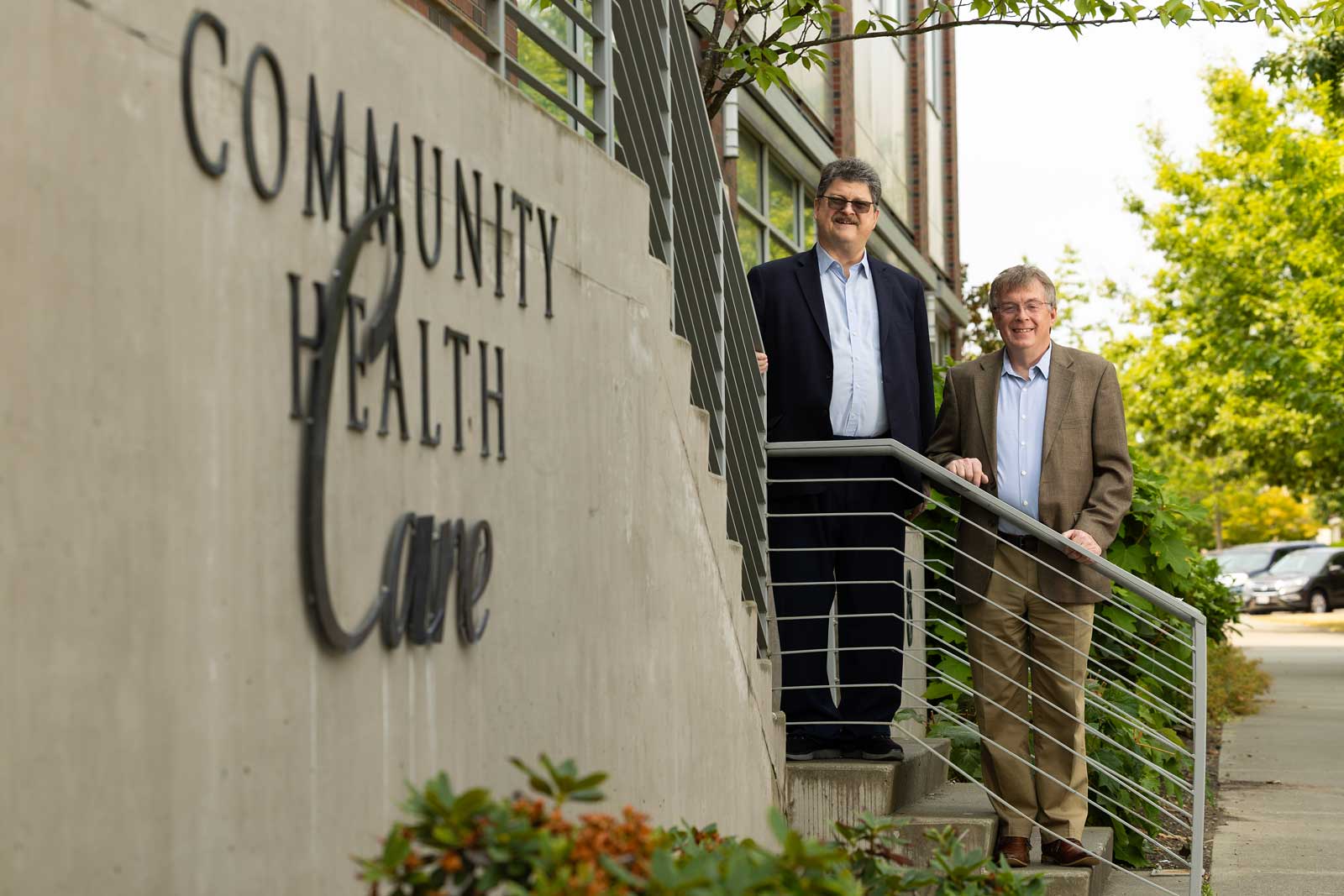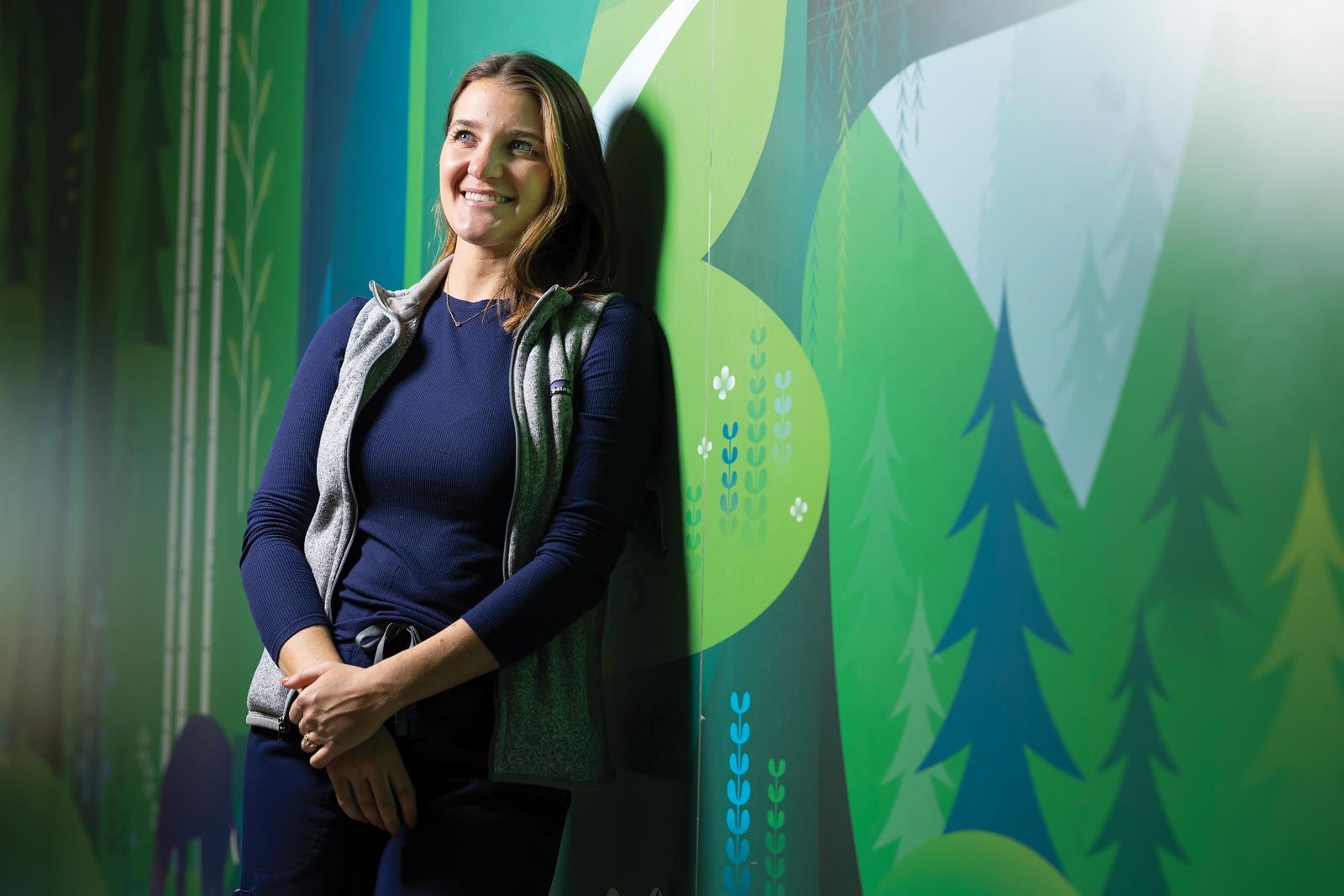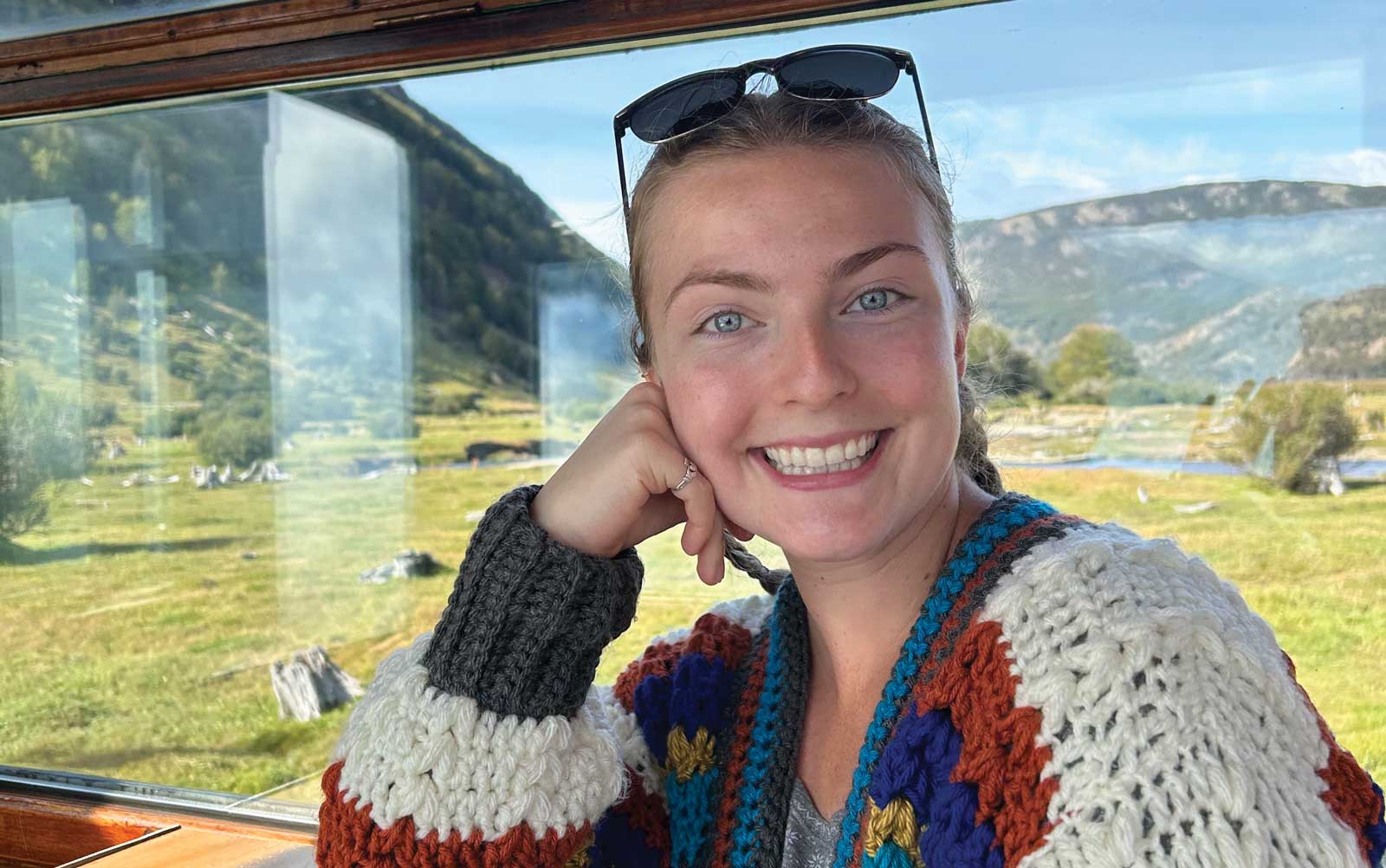PLU Alum Kameron Jacobs ’14 Communicates Through Crises With Compassion and Grit
"No matter the topic or the mission, it’s all about care. Care for others. Help for other people."

By Britt Board
That’s what drives Kameron Jacobs ’14. Whether he’s managing global HIV prevention messaging, volunteering for Pride events, coordinating clinical trial communications, or connecting people through music, care is at the center of it all.
We caught up with Jacobs at 208 Garfield, the café where he used to work as a student and often visits now to work remotely, just a block from where his journey at PLU began.
Today, Jacobs is the Communications Manager for the HIV Prevention Trials Network (HPTN), helping translate public health science into clear, actionable information. His work focuses on HIV prevention — communicating the science behind clinical trials, injectable treatments, and long-term prevention strategies to the people and communities most affected.
It’s urgent, high-impact work, especially now: with federal funding uncertain or cut mid-stream, Jacobs’ team is working under immense pressure to keep studies running and patients safe. “You can’t start and stop a clinical trial that involves people,” he says. “We’ve had to be thoughtful, creative, and careful every step of the way.”
Going back in time to 2010, Jacobs left his hometown of Enumclaw and came to PLU to study music education. But after student teaching, he realized his students needed more than a college graduate. “With the courage I earned from PLU, I realized I was still young and needed to see the world before teaching.”
He joined the Navy and spent seven years working with Marines and sailors on humanitarian initiatives and to improve public health communication. What came next shocked Jacobs and the world: the COVID-19 pandemic. “We were working 18-hour days with limited resources. We all redirected energy toward the pandemic, so I moved from the HIV space to exclusively working on crisis response and communications for COVID.”
Grit and resilience are our main ingredients right now. They can’t be taught — life has to be experienced to appreciate those qualities.
Coming out of the pandemic, Jacobs emerged with a master’s in communication from Johns Hopkins University, plenty of stress management skills, and a wealth of experience that one could only get from surviving something as globally affecting as the pandemic. After leaving the Navy, Jacobs returned to the topic that had been pulling at him for years: HIV awareness and prevention.
In his role as the Communications Manager for HPTN, Jacobs leads strategic communications plans, turning complex scientific research into clear, community-focused messages that support global HIV prevention efforts. In short, “It’s about informing the public with the best possible science. It isn’t that different from conducting a powerful piece of music to a captive audience.”
As you might imagine, public health communication can be a complicated arena. For example, HPTN understood that social media — especially TikTok — is essential for recruiting people for clinical trials who are disproportionately affected by HIV, like gay and bisexual Black men. Due to the challenges posed by the federal government’s concerns over TikTok, Jacobs and team had to pivot their communication plan. Jacobs recalls asking himself, “How do you remove a whole channel and still reach as many people as possible? And the right people, at the right time?”
Day-to-day challenges like this necessitate that HPTN stays nimble. It’s a pandemic-era mindset that’s all too familiar to Jacobs. Ultimately, this kind of work saves lives, and Jacobs directly credits PLU for instilling values that he draws upon today in this incredibly taxing field — “Thoughtful inquiry and care really stuck with me.”
While his career has been defined by challenges, Jacobs also reflects on the major victories in this sector: “It was unimaginable 25 years ago that a person could take medication to prevent them from getting HIV. We’ve moved the needle even more now — people can get an injection for HIV prevention, and we’ve made strides in developing a vaccine.”
Even as his work continues in the public health arena, Jacobs finds grounding in the creative part of himself that first brought him to PLU. “I see the threads of music and art throughout my life, and sometimes in surprising places,” he says. After setting music aside during his military service, Jacobs notes, “Having music removed from my life was a lesson in appreciation that I cannot explain.”
Now, he injects music into every space he can, from supporting performers at Seattle Pride, to bringing a DJ in for a scientific conference, to singing for coworkers to help maintain their sanity during COVID.
“Music can be so much more than performance,” he reflects. “It teaches you how to bring people together around a mission, work through challenges, and feel proud of what you’ve built.”
Looking forward to an unpredictable future, Jacobs says, “Grit and resilience are our main ingredients right now. They can’t be taught — life has to be experienced to appreciate those qualities. When you face adversity, chaos, and uncertainty, it’s about looking in the mirror and saying, ‘I’ve got this.’”
For people who want to help but feel lost, Jacobs’ challenge is simple: “If you can trade in a couple of hours of scrolling for picking up trash and volunteering, we could change our communities for the better. In this ocean, every drop counts.”
When asked about his next steps, Jacobs smiles and says, “I’m not going to tell the universe what to do for me. I’m just letting the music play.”





